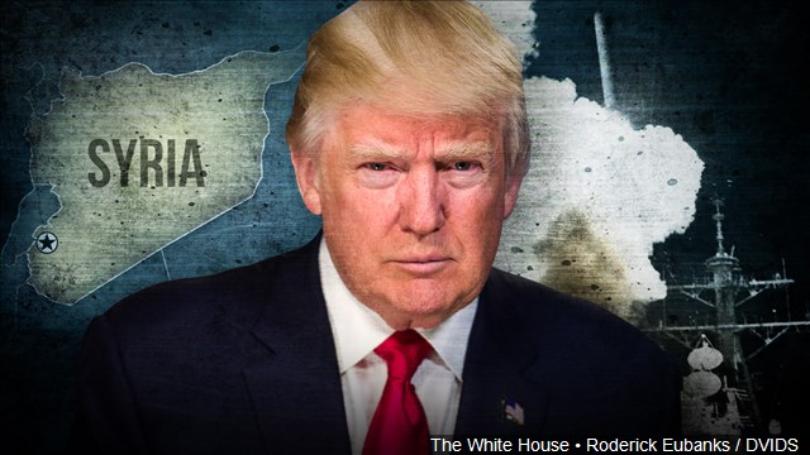Whisper it quietly, but Donald Trump may have taken the first step towards fulfilling his responsibilities as leader of the free world in the dangerous times we live in. If you need this confirmed, simply look at the response to his Syrian air strikes. It provoked indignation among the usual suspects, the usual suspects being the motley collection of far left anti-western stop the war protestors (who it seems only have any desire to ‘stop’ wars waged by the west) and his own extreme right wing supporters (including his biggest British supporter, Nigel Farage). A policy choice angering these two groups is usually a good sign.
In the immediate term, the attack was necessary in response to President Assad’s flouting of international law in the cowardly use of chemical weapons on his own people. We all saw the harrowing footage of civilians, many of whom were children, reeling from the use of these weapons, images which shocked and angered even by the standards of a conflict which has plumbed new depths in human savagery. The depravity of the war crime I feel justifies America acting unilaterally and without UN backing, which would have been preferable but is in practical terms impossible to gain due to the veto which Russia holds in the Security Council. It is furthermore a relief to see that even following his dangerous ‘America First’ campaign rhetoric America under Trump will still intervene abroad at times such as these. The concept of western foreign interventions may have been damaged by the unpopularity of the Iraq war, but the scale of the suffering inflicted in Syria’s civil war ought to remind us that there can be a price to not intervening in the affairs of what Neville Chamberlain once called ‘far away peoples of whom we know nothing’.
It should be clear to most that such events do have ramifications for us in the West. As Islamic State are slowly but surely pushed back militarily (incidentally also helped by Western intervention in the form of air strikes) thoughts must turn to the long term future of the Middle East. With each fresh atrocity Assad’s position looks more untenable, despite his support in the Kremlin, and it is becoming clear that once the fight with Islamic State is under control a plan must be put in place by which he leaves power. Trump’s airstrike makes this point, reminding the world that a struggle over succession in Syria looms when ISIS have been neutralised. It also reminds Vladimir Putin, by far Assad’s biggest international supporter, that the West will not be likely to tolerate any settlement by which the cruel dictator remains in power long term. Given Russia will have to be part of the solution in Syria this is to be welcomed. It is wise of course not to exaggerate how encouraging this turn of events is; that many of an internationalist persuasion are praising what would otherwise seem an automatic US response to the use of chemical weapons is perhaps a sign of how Donald Trump’s presidency has lowered expectations of a US President. Does he have the patience and skills as a statement to negotiate the minefield that is the Syrian conflict? Probably not. However, this latest development does suggest a retreat from some of the worst of his campaign rhetoric, and suggests he may be less isolationist and pro-Putin in his foreign policy than many (myself included) feared.
Alex Passingham
(Image courtesy of KY3)

